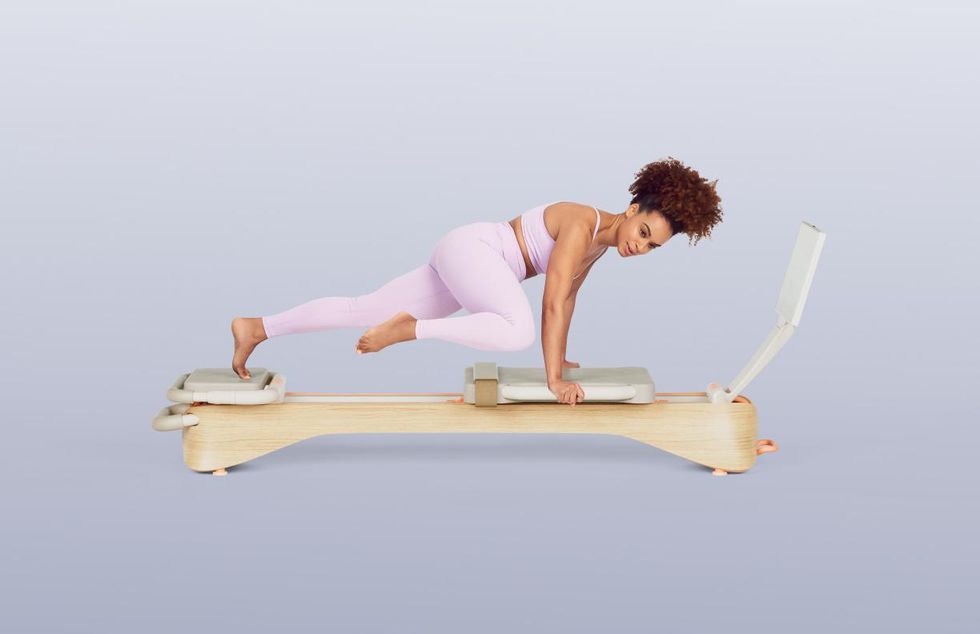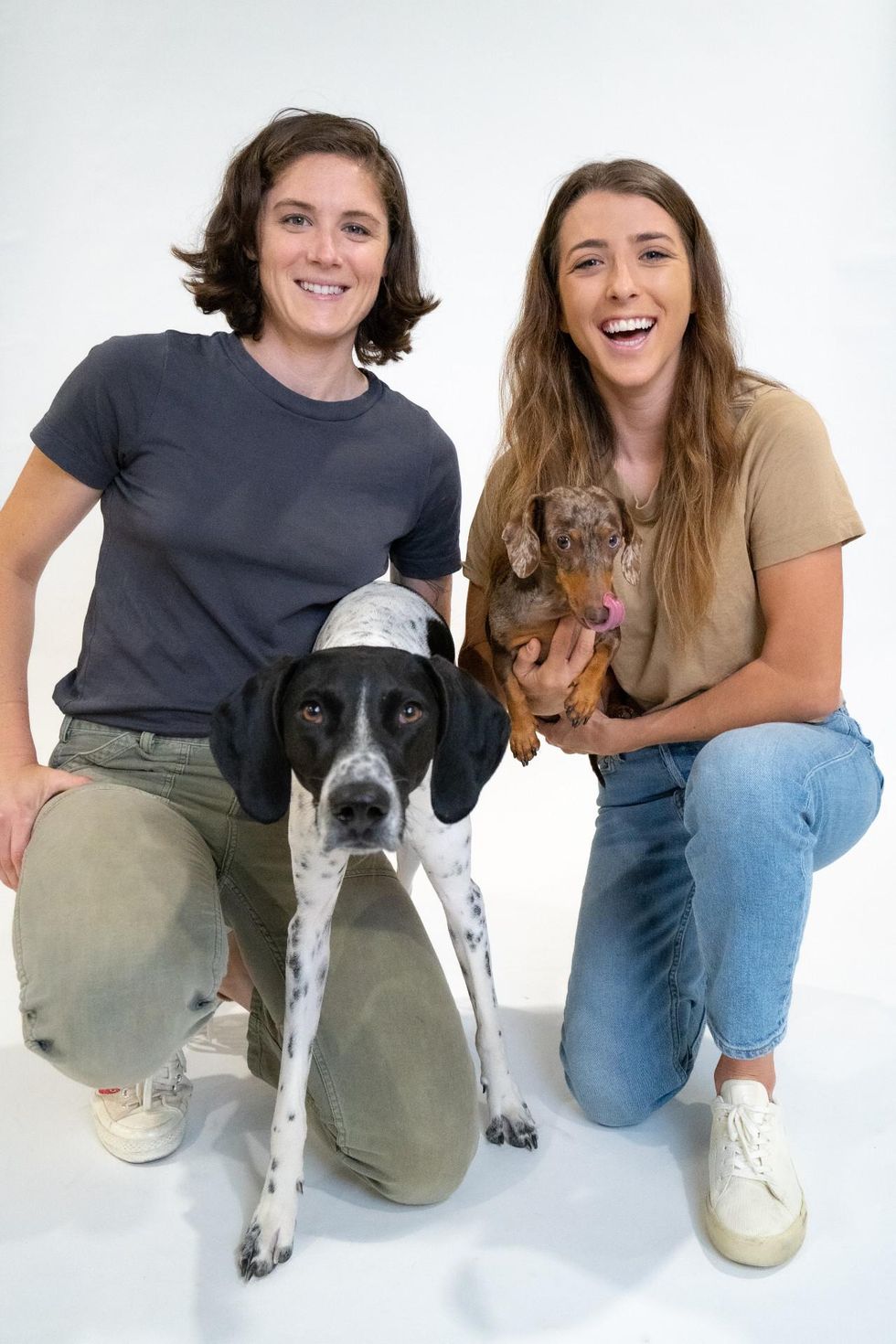Frame Fitness co-founder Melissa Bentivoglio discovered reformer Pilates through her doctor while struggling to recover from a broken pelvic bone in 2006. Immediately, she fell in love with the low-impact form of exercise.
Just a few years later, the longtime fitness instructor is launching a suite of at-home fitness equipment and software aimed at Pilates enthusiasts. Bentivoglio and her husband, Lee Belzberg, said their Los Angeles company, Frame Fitness, will focus on 'reformer' Pilates — a type of Pilates performed with equipment, rather than mats.
"The Pilates world is very steep in foundation, but often it lacks innovation, I had the idea to create my own reformer," Bentivogolio said.
The at-home fitness industry has surged during the pandemic. Stationary-bike-maker Peloton's stock jumped more than 400% in 2020, according to Barron's. Gyms, on the other hand, took a hit. Gold's Gym and 24 Hour Fitness both filed for bankruptcy protection in 2020. (Notably, the founder and former CEO of 24 Hour Fitness, Mark Mastrov has invested in Frame Fitness just last week in a seed funding round.)
At-home fitness grew exponentially during the pandemic, as gyms shuttered and their members looked to other ways to get in shape. The couple is betting their equipment will appeal to Pilates enthusiasts, a segment within the fitness industry that -- unlike running or cycling -- isn't the focus of most at-home workout stations.

Reformer Pilates is often recommended for beginners because it allows them to control the amount of resistance and movement.
Frame Fitness's home reformer includes a 24.5 inch, sweat-resistant touchscreen and a wheeled frame that allows users to fold it up and stash it under their bed or in a closet. The company also offers other related accessories, including a weighted bar, a Pilates ball, a Pilates ring, and hand weights.
Investors funded the company even though Frame fitness products are not yet on the market. Bentivoglio said her experience as an instructor who has already designed a Pilates reformer -- the unique equipment used for the discipline -- provided them some comfort.
Bentivoglio previously teamed up with an industrial designer to create all 16 of the commercial Pilates equipment in her Ontario, Canada-based brick-and-mortar studio.
Frame plans to take orders for its reformer, which retails at $2,999 later this month. It's set to roll out in early 2022.
In addition to the retail price, there is also a $45 monthly cost for the class subscription or a $500 annual membership. Bentivoglio said that consumers can expect on-demand workouts that range from classical instruction to cardio infused Pilates, high-intensity boot camp classes and even yoga and prenatal stretches. Frame Fitness prides itself on being an asset to all levels from beginners to experts.
The $5 million seed round, which was announced last week, was led by Mastrov, Crunch Fitness Worldwide CEO Jim Rowley, Core Health and Fitness CEO Michael Bruno and Ernie Moody, founder of Action Gaming. It closed in March 2020.
Bentivoglio said she's found investors are extremely interested in backing at-home fitness ventures.
"There's the substantiation of appetite, there's a large investment appetite for connective at-home fitness," she said.
Correction: An earlier version of this post misstated when Frame Fitness will be taking preorders for its new products and the date the seed round was closed.
- FitOn Fitness App Raises $7 Million in Funding - dot.LA ›
- Zwift's Raises $450M to Build Fitness Hardware - dot.LA ›
- Watch: Three Health and Wellness Leaders Look at the Future of the ... ›
- Fitness app Masters Allows Users to Train with Pro Athletes - dot.LA ›
- FitLab Raises $15 Million - dot.LA ›


